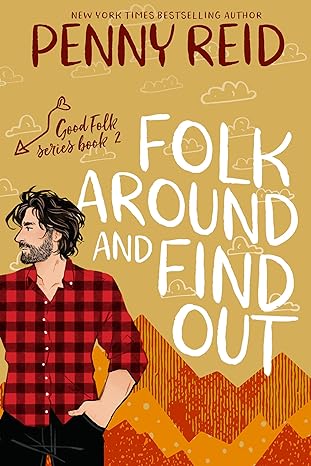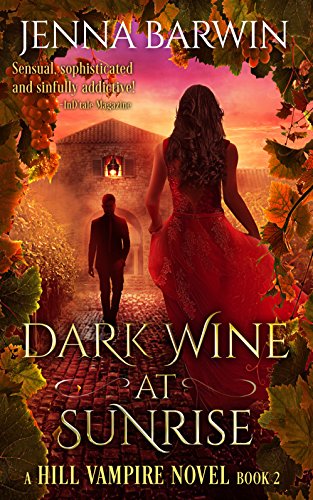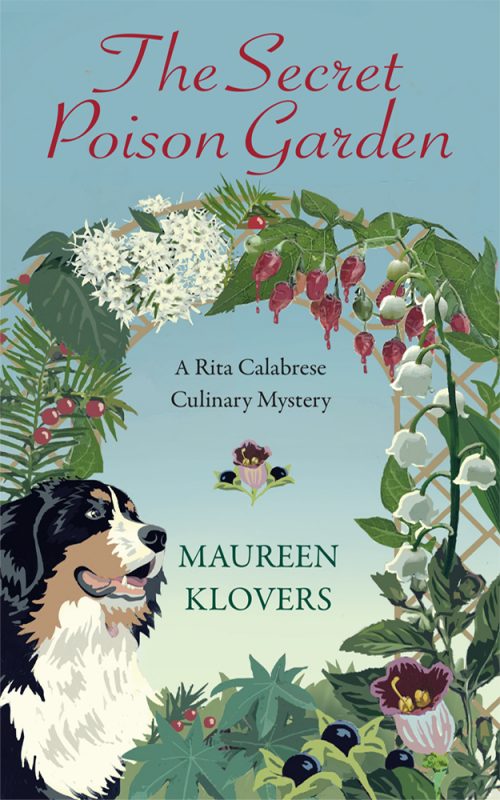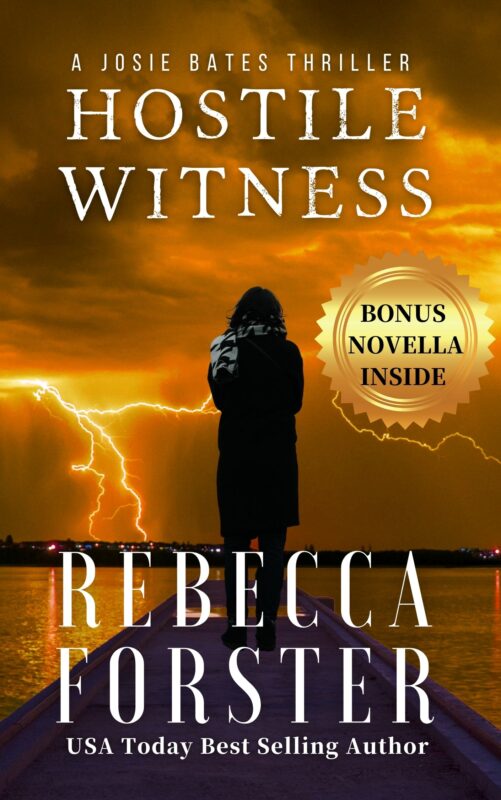What’s in a Name?
March 4, 2018 by H. O. Charles in category Art, Cover, Design by H. O. Charles tagged as Fantansy, Pseudonym, writingI recently completed an interview where I was asked why I had chosen the pseudonym H. O. Charles, and it got me thinking.
My original reasons for choosing it were twofold: 1) To mask my true identity. Indeed, I sometimes get changed in telephone boxes, have an aversion to green rocks, and wear superfluous spectacles. That, and I was working in academia and didn’t want my terribly serious scientific work to be associated with the fiction I was writing. 2) Fantasy authors do not look and sound like the real me. They are often bearded, and bear a striking resemblance to just about every wizard trope committed to celluloid or print. Not J. K. Rowling, I hear you mumble at your screens, but she is a rarity, and as I shall soon discuss, had to publish under the gender-free initials plus surname arrangement, because… reasons. Plus, she was technically a children’s author (more on why that counts later). Compare the spectacular beards of writers of fantasy novels for adults: George R R Martin, Terry Pratchett, Robert Jordan, and Patrick Rothfuss.
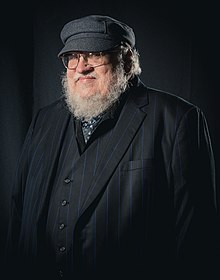
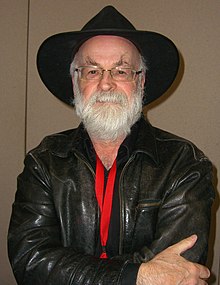
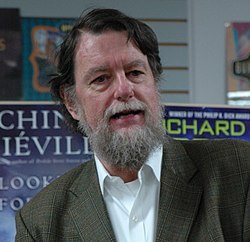

They are/were all excellent writers who did not get where they did in the absence of talent or hard work, and putting confirmation bias aside, there ARE plenty of other unbearded fantasy writers who have sold as many books as these men (Terry Brooks, Brandon Sanderson, JRR Tolkein etc.). But try as hard as I might, I do not, and cannot, look anything like these guys or the others. I should point out here how I’m defining fantasy – something closer to high fantasy, set in a pseudo-medieval setting, and with epic length novels that make up a series. Pratchett played fast and loose with the genre, but that was part of what made his work…well, work. Therefore, how can someone who doesn’t ‘fit’ hope to join the fantasy author club that is so overwhelmingly male, Gandalf-haired, and white?
We are fortunate to live in an age of increasing awareness about differences, our own attitudes to them, and the barriers those differences can create. However, there are some implicit assumptions that have grown up around book genres that still pervade and will continue to do so because it’s a business of selling. If I were to tell you there was a new fantasy novel out from a major publishing house, and that the author was young and female, you would probably guess that this novel was either urban or paranormal fantasy rather than high, and that it would feature a female protagonist upon the cover. You would guess this because of the books we tend to see on sale, and thus we do not have the expectation of young, female writers in the high fantasy genre, but we do have that expectation in urban and paranormal fantasy. Regarding the female characters on front covers, isn’t it interesting how Neil Gaiman, Jasper Fforde, and China Mieville almost never have their male protagonists upon their front covers? A publisher’s decision, for sure, but it makes me wonder how this works in terms of audience selection and preconception.
Then there’s the romance aspect. Writing and reading about romance are seen as innately feminine activities, and the concept of a romance by a female author has become so firmly ingrained that male romance writers will operate under female pseudonyms. When a woman writes fantasy, I would argue that a typical reader, before turning the first page, would expect it to be inherently more romantic than if a man had written it. But in truth, there is plenty of romance to be found in fantasy novels written by men. In fact, just about all of them contain a romantic subplot. But our preconceptions colour how we read everything.
A 2014 study at Goodreads found that readers preferred reading the work of authors from their own gender. I wonder if that is because men are expected to write in a genre that men are expected to read, and vice versa, OR if we genuinely gravitate to authors we feel a connection to. And if the first is true, I wonder if the publishers continue to reinforce such patterns because it is a business model that has always worked. If it is the second, then it might explain why fewer authors submit their work to publishers in genres where they are already under-represented.
Within my own readership, I have found that reviewers, where their names are gendered (I realise I’m making assumptions here on how they identify, but then I’m generalising anyway), tend to identify me as male if they happen to be male, and female if they happen to be male. Not only is it intensely fascinating to me that they believe they have identified my gender, but also that no one can agree on it! Does it reflect what they want to see in an author and is their assumption why they picked up my book, or is it that they project themselves in their own mental image of the author (which is how empathy works)?
A third possibility is that they thought my subject matter or manner of writing indicated I belonged to either the male or female gender. Interestingly, there is an algorithm that will try to predict your binary gender from the pronouns and nouns you use in your writing. Find it here. I pasted in several of my books, and each time it decided I was ‘weak male’. I’m not telling you what I truly am…
It would be interesting to hear what your results are, so do add them to the comments section below.
Back to romance – the idea that women are more preoccupied with romantic stories than men has always struck me as completely nonsensical. If men were not interested in romance in the real world, then none would get married, yet weddings keep on happening. If male readers are interested in romance in the real world, then why not in fiction? It strikes me that the disjuncture between a male readership and a ‘feminine’ genre has more to do with fashion and cultural bias than any inherent differences. Indeed, it is my belief that broadly the same things worry us, interest us, frighten and excite us, since we are human before we are of any particular gender, and that male and female preoccupations are entirely arbitrarily assigned. A writer would not get far with either characterisation or plot if they believed men were only after sex and women were only interested in having children, and that the two minds could never find common ground. Men are from earth; women are from earth.
I mentioned JK Rowling earlier, though scarcely a discussion about authors comes up without her name being mentioned, and I also noted it in the context of children’s books. This is one genre where author genders are more evenly balanced – a quick appraisal of the top 100 on Amazon will demonstrate this (and Rowling occupies about 20 of the spots in the top 100 children’s books!). It is one of those genres where a woman would not feel she was an exception to the gender rule in applying to be published, but whether the proportions of applicants carry through to publications in that genre is unknown to me. What was revealed only recently, however, was that the characters depicted in children’s books tend to contain heroes and villains who are overwhelmingly male and masculine. Female characters, on the other hand, were entirely missing from a fifth of the books studied. Why is it then, that even the female authors were writing about males more often than females?
I suspect it has more to do with what we read, and how we subconsciously reproduce a part of it. Rowling’s novels, to unfairly pull out one example, owe much to Ursula Le Guin’s Earthsea series, which again feature a male hero and villain, and if every other children’s author grew up reading children’s novels featuring male heroes, then perhaps it is not surprising that change has been slow to take place. Perhaps this is a bit of social reproduction, but with gender instead of class, in action.
There is evidence to suggest it helps to have a male author name in certain genres (I do not know which genre Nichols’ book was submitted under – someone please let me know if you do). This article describes how Catherine Nichols received eight and a half times more responses for her manuscript when she pretended her name was George than she did when she was Catherine. Both the male and female agents were guilty of preferring George over Catherine. And yet, there are plenty of male authors out there who have chosen neutral or even female names in order to connect with their audience or fit with their genre.
For these reasons (and the beard problem), I shall remain as a genderless H. O. Charles, or Hadleigh, if you prefer, and for these reasons my profile picture shall remain as a drawing rather than a photo. But what do you think? Is there a certain look or persona an author should adopt in order to publish within a particular genre? Does your gender and the gender of your characters help or hinder you? How male or female was your writing in the gender guesser?!
Some more reading:
https://jezebel.com/homme-de-plume-what-i-learned-sending-my-novel-out-und-1720637627
https://www.theguardian.com/books/2017/may/11/are-things-getting-worse-for-women-in-publishing
Visiting the Scene or Vacation? by Will Zeilinger
March 3, 2018 by Janet Elizabeth Lynn and Will Zeilinger in category Partners in Crime by Janet Elizabeth Lynn & Will Zeilinger tagged as mysteries, research, writing partners My wife Janet Lynn, and I have been writing together for several years and are just completing our fourth co-written murder mystery novel. Since our stories are set in the 1950s, we have to research many of the locations that have either changed or no longer exist. And because our storylines take us to distant places, we travel to many of those sites in order to get it right. Google Earth is great, and the web is invaluable, but there is only so much you can learn from these resources. Nothing beats being there in person. This works out great because we both love to travel.
My wife Janet Lynn, and I have been writing together for several years and are just completing our fourth co-written murder mystery novel. Since our stories are set in the 1950s, we have to research many of the locations that have either changed or no longer exist. And because our storylines take us to distant places, we travel to many of those sites in order to get it right. Google Earth is great, and the web is invaluable, but there is only so much you can learn from these resources. Nothing beats being there in person. This works out great because we both love to travel.
For our first Skylar Drake Mystery, SLIVERS OF GLASS, we traveled to the northern California wine country, including Sonoma County, Bodega Bay and Santa Rosa.
STRANGE MARKINGS took us to Molokai where we researched pre-statehood Hawaii. This was the only Hawaiian island that wasn’t overly developed and gave us an idea of Hawaii before all the high-rise buildings. 
Las Vegas in the mid-1950s was the setting for DESERT ICE. Most of our time was spent in the Special Collections at the UNLV Library, the Clark County Library and the Nevada State Museum. The Mob Museum to really give us the flavor of Vegas in 1955. We also had the opportunity to interview a Las Vegas Dancer and the daughter a notorious mobster who lived there in the 1950s.
When we tell friends and family about our trips, they turn green with envy and mistakenly think we are on a vacation. Nothing could be further from the truth, although we do learn things a “normal” tourist wouldn’t. We are entertained by the people we meet and the historical tidbits that come to light during our research.
 Success in our research may stem from the questions Janet asks hotel staff, restaurant wait staff and sometimes random residents we meet on the street. She’ll ask, “If you needed to dump a dead body around here… where would you put it?” The result is one of two different reactions. First: The person will take a couple of steps back and look around for an escape route. Or Second: They’ll provide specific locations of abandoned buildings, intersections, cemetery names, coves, cliffs or other places. This can seem a bit disconcerting, because that response means they’ve thought about this in depth. There are times I’ve felt like taking a couple of steps back myself.
Success in our research may stem from the questions Janet asks hotel staff, restaurant wait staff and sometimes random residents we meet on the street. She’ll ask, “If you needed to dump a dead body around here… where would you put it?” The result is one of two different reactions. First: The person will take a couple of steps back and look around for an escape route. Or Second: They’ll provide specific locations of abandoned buildings, intersections, cemetery names, coves, cliffs or other places. This can seem a bit disconcerting, because that response means they’ve thought about this in depth. There are times I’ve felt like taking a couple of steps back myself.
Our most recent book is a prime example. SLICK DEAL is set in 1956 on Santa Catalina Island. (only twenty-something miles off the coast of southern California.) We did exhaustive online research before consulting the Long Beach Main Library. We happened to be on Catalina Island for other reasons a few months ago and stopped in at the Visitors Center. They also referred us to the Avalon branch of the L.A. County Library , which happened to be closed at the time we visited. We next visited the Chamber of Commerce, who, once again, referred us to the Library. This wasn’t going to work, so we visited the Catalina Conservancy. Guess where they referred us. Yes, the Library. We thought we had it solved when we went to the Catalina Island Museum. Again, they said, to try the Library. This prompted another visit to the Island when the Library was open. We scheduled it during the month our story took place and many questions were answered. The staff was helpful and even provided white cotton gloves so we could rummage through their archives.
 Some of the most interesting facts came from the guide at the Avalon Casino “Frankie of Avalon,” who grew up on Catalina. There was also a fellow at the golf-cart rental shop, and a couple of waiters. Does that sound like a relaxing vacation?
Some of the most interesting facts came from the guide at the Avalon Casino “Frankie of Avalon,” who grew up on Catalina. There was also a fellow at the golf-cart rental shop, and a couple of waiters. Does that sound like a relaxing vacation?
Once we visited these locations, we were struck with inspiration and appreciation for the locales.
Online research is great, but physically visiting the places where your story takes place can supply all your senses with sights, sounds, smells, tastes, and the personality of the people you meet. As a couple writing together, we have a great time and, after four books, we’re still married.
Author Susan Squires Spins Her Magic…by Jann Ryan
March 2, 2018 by Jann Ryan in category Jann says . . . tagged as contemporary romance, Paranormal Romance, Susan Squires Susan Squires grew up among the giant redwoods of California. She thought she was being practical by changing her major in college from theater to English literature. Immersed in a PhD. Program, she slowly realized that none of her graduating friends had work. So she dropped out after receiving a Master’s degree to take a paying job in the business world.
Susan Squires grew up among the giant redwoods of California. She thought she was being practical by changing her major in college from theater to English literature. Immersed in a PhD. Program, she slowly realized that none of her graduating friends had work. So she dropped out after receiving a Master’s degree to take a paying job in the business world.
As an executive in a Fortune 500 company, she returned to her love of writing while continuing to hold her day-job, much to the amusement of her fellow executives. Her novel Danegeld, had already been purchased by Dorchester by the time she accepted a Golden Heart for Best Unpublished Paranormal Manuscript from Romance Writers of America. It was the first of an eclectic group of historical and contemporary paranormal stories known for their intensity. Body Electric was named by Publishers Weekly one of the ten most influential paperbacks of 2002, for blending romance and science-fiction. Book List compared No More Lies to the works of Robin Cook and Michael Crichton, but it was also a Rita finalist for Best Published Paranormal Romance by Romance Writers of America.
Susan’s Companion Series for St. Martin’s Press, continued to garner attention with admiring reviews and several visits to the New York Times Bestseller List. Publishers Weekly named One with the Shadows a Best Book of the Year, and several of the series received starred reviews. Her books have won the many regional contests for published works of paranormal romantic fiction.
Susan no longer has to use tales of romance and adventure to escape budgets and projects. She finally left her day job, and researches and writes her books at the beach in Southern California, supported by three Belgian Sheepdogs and a wonderful husband named Harry who writes occult mysteries as H.R. Knight.
Jann: Today, the amazing Susan Squires is going to share a little bit of magic with us.
Jann: A Romance Writer of America Golden Heart winner, a Rita finalist and a New York Times Bestseller—what a resume. How did these achievements impact your writing?
Susan: I don’t think these affected the writing itself at all. I have always written big, intense books with a lot going on in them to support the romance. Winning the Golden Heart and being a Rita finalist certainly impacted my confidence and my determination to persevere. The Golden Heart looks great in a query letter, too. In my case by the time of the Golden Heart ceremony my book (DANEGELD) had already been acquired by an editor for a NY publishing house. But he found that book by judging a contest I’d entered through the Orange County Chapter of RWA, so I definitely believe in entering contests. Being on the NYT list gave me access to a wider audience. Even when I began to self-publish as well as working with traditional publishers, I had a large mailing list to boost my sales.
Jann: You write historical and contemporary paranormal romance—Time Travel, Vampires and Magic. On February 7, 2018 you released Book 6 in your Magic series, This Magic Moment. Let’s talk a little magic.
 Susan: Whenever I try to write straight romance, paranormal elements just seem to creep in. The Tremaines in the Magic series are a big family who live on an isolated bluff over the ocean in a ritzy suburb of Los Angeles. Sounds pretty ordinary, right? But they are descended from Merlin of Camelot, and they inherited a magic gene. Merlin’s powers were dispersed through the ages, but now the magic wants to come together. So when two people who have the gene meet, they are irresistibly attracted to each other, and each gets a magic power. Sounds great, right? But magic has a cost as well as being a gift. Besides, what if your destined lover is someone you just can’t stand? Or maybe you feel trapped because the choice won’t be yours? What if you’re sure your family’s destiny has passed you by? Each book in the Magic series features one of the Tremaine siblings. And of course, there are also those who got their power from Morgan Le Fay. The Tremaines want to do good in the world with their abilities. Morgan’s Clan, not so much.
Susan: Whenever I try to write straight romance, paranormal elements just seem to creep in. The Tremaines in the Magic series are a big family who live on an isolated bluff over the ocean in a ritzy suburb of Los Angeles. Sounds pretty ordinary, right? But they are descended from Merlin of Camelot, and they inherited a magic gene. Merlin’s powers were dispersed through the ages, but now the magic wants to come together. So when two people who have the gene meet, they are irresistibly attracted to each other, and each gets a magic power. Sounds great, right? But magic has a cost as well as being a gift. Besides, what if your destined lover is someone you just can’t stand? Or maybe you feel trapped because the choice won’t be yours? What if you’re sure your family’s destiny has passed you by? Each book in the Magic series features one of the Tremaine siblings. And of course, there are also those who got their power from Morgan Le Fay. The Tremaines want to do good in the world with their abilities. Morgan’s Clan, not so much.
Jann: Where did you get the idea for the series?
Susan: I wrote a book in my DaVinci time travel series called THE MISTS OF TIME. In it, a romance writer wants to escape her life and return to Camelot, to the age when courtly romance began. Of course, Camelot isn’t at all what she imagined. In fact, she herself isn’t who she thought she was.
Merlin and his son were characters in that novel. I liked them. It occurred to me that what Merlin must have wanted most was to pass his powers down through his progeny in order to change the world for the better. But he didn’t, did he? In the legends he didn’t even have a son. So I began thinking, what if his lost powers did come down to the present day? Who would get them? How would they work? What would those people do with them? That’s when the story of the Tremaines started taking shape.
Jann: You have written such amazing characters for this series. Did you have them all worked out before you started the first book, Do You Believe in Magic ?
Susan: I did have to work them all out in advance. The problem with writing a story about an extended family with an overarching villain plot only resolved in book six, is that you have to know how everything works before you start. The younger siblings have to be, in the very first book, who they will be by the time they get their own story. Of course they will be affected by events in between, but they can’t turn into different characters. So I wrote an extended synopsis that included stories and characters for each book. Not that I stuck exactly to the script, and I certainly embellished, but it was a roadmap.
Jann: Tell us about Tammy Tremaine and Thomas, the main characters in This Magic Moment.
Susan: Tammy is the baby of the Tremaine family. She’s been isolated at the family compound since the family was put in danger by the Clan, so she’s never had a normal teenage experience. Thomas was raised in a monastery on Mount Athos in Greece, sent there when he was nine by his mentor—Morgan Le Fay. Now she’s brought him back to the U.S. to fulfill a purpose. He doesn’t even know what it is. Tammy sees him across a parking lot and knows instantly that she is so, so doomed. Her destined lover is a member of the Clan. Morgan’s plans are coming to fruitio, and both their families will be ranged against them. The question is, will they be able to conquer their differences before it’s too late?
Jann: Will there be another Magic book?
Susan: Well, that’s a bit of a trick question. I have not planned another one. I wrote six, as well as a novella with the Tremaine parents back story. But readers will see that I Ieft at least one trap door, in case I want to come back to this wonderful family. I have grown to love them so much that I will truly miss them.
Jann: Do you find yourself returning to certain themes in your stories? What? Why?
Susan: As I look back on my books I think there is a common theme. I guess it would be that you have to embrace what you fear most in order to be whole. It’s expressed in many different ways, but this is how my characters grow and change.
Jann: What’s the best writing advice you ever received?
Susan: The best writing advice I ever got was one word. Persevere. It takes time to get good at writing. My first book was horrible. So were most writers’ first books. I remember hanging out at the bar with Charlaine Harris after we’d been on a panel together. She was so tired of being asked what it felt like to be an overnight success. She said “What about the 25 mysteries I wrote before the Sookie Stackhouse books? What about the five books before that which were so terrible they couldn’t even be published?” No success is overnight. You have to persevere and learn your craft.
Jann: Where can we get your books?
Susan: All my books are available at Amazon.com in digital format and trade paperback. For a list, you can visit. susansquires.com. You can also find the order of the Magic series books there. While they can all be read as standalone stories, I think they benefit from being read in order, beginning with DO YOU BELIEVE IN MAGIC?
Jann: Thank you Susan for spending time with us here on A Slice of Orange.
 Jann Ryan grew up with the smell of orange blossoms in Orange County in sunny Southern California, where she has lived her entire life and dreamed up stories since she was a young girl. Never an avid reader, she was in her thirties when she picked up her first romance quite by accident. She fell in love with happily ever after and has been reading romances ever since.
Jann Ryan grew up with the smell of orange blossoms in Orange County in sunny Southern California, where she has lived her entire life and dreamed up stories since she was a young girl. Never an avid reader, she was in her thirties when she picked up her first romance quite by accident. She fell in love with happily ever after and has been reading romances ever since.
Wanting to put pen to paper, Jann joined of Romance Writers of America®. Currently, she is working on a romantic suspense series set in Stellar Bay, a fictitious town along the California central coast to fulfill her publishing dream.
March Featured Authors: Janet Elizabeth Lynn and Will Zeilinger
March 1, 2018 by marianne h donley in category Apples & Oranges by Marianne H. Donley, Featured Author of the Month tagged as 1950s, hard-boiled mysteries, Historical Mysteries, Janet Lynn, Will Zeilinger

Published authors Will Zeilinger and Janet Lynn had been writing individually until they got together and wrote the Skylar Drake Mystery Series. These hard-boiled tales are based in old Hollywood of 1955. Janet has published seven mystery novels, and Will has three plus a couple of short stories. Their world travels have sparked several ideas for murder and crime stories. This creative couple is married and lives in Southern California.
Dear Extra Squeeze Team, Do I Really Need an Editor?
February 28, 2018 by The Extra Squeeze in category The Extra Squeeze by The Extra Squeeze Team tagged as critiques, Editors, writing
Dear Extra Squeeze Team, I was an English major in college. Do I really need to hire an editor for my self-published book?

Rebecca Forster
USA Today Bestselling author of 35 books, including the Witness series and the new Finn O’Brien series.
Dear I’m an English Major,
Me, too! That and twenty-five cents won’t get me a cup of coffee much less a polished book. Basically, even if I wrote Elements of Style, even if I was Shakespeare (okay, maybe not Shakespeare), I would still need an editor. Why? Because there are few human beings who can look at their own work objectively. If we could, we would catch ever plot hole, hear every piece of clanging dialogue that ruins our carefully drawn characters, and never miss a pacing problem. We would catch every missing conjunction, misspelled word and wayward apostrophe that found it’s (its) way into its (it’s).
If you’re still not convinced, ask yourself these three questions:
1) Have you ever asked someone if you look fat in a new dress?
2) Have you ever uttered the words ‘what do you think?’ (about anything)
3) Have you ever talked through a problem late into the night with someone you trust?
If the answer to any (or I bet all) of these questions is yes, you need an editor. We search out that critical eye and the honest voice in our lives and we should do the same with our work. Our lives and our books will be better for it.
Love,
Rebecca Forster
USA Today & Amazon Best-selling Author
Flawed English major/content editorial client
Secret Relations, Book #3 in the Finn O’Brien Thriller Series launches March 3, 2018
Read a Snek Peek and get your copy now!
Website
Facebook
Twitter: @Rebecca_Forster
INSTAGRAM: REBECCAFORSTER1211
Subscribe and get my 2-book starter library:
Bookbub
Happy Reading Everyone!

Jenny Jensen
Developmental editor who has worked for twenty plus years with new and established authors of both fiction and non-fiction, traditional and indie.
Yes!
You may know pluperfect from a transitory verb. You may be meticulously accurate with every comma, semi-colon, quotation mark, em-dash and ellipse. You may be a practiced writer fluent in multiple literary forms, but you cannot read your own work with a neutral, critical eye.
The act of writing is a solitary endeavor. A story is conceived in the mind and is played with, tweaked, adjusted, re-written until it becomes, in the writer’s mind a complete and sensible whole. That process often involves input from other writers and beta readers while the work is in progress. These are trusted voices that become part of the process as you bring the story from your mind to its final form. The input you’ve received has been beneficial in making it a better work. But each of these sources has an investment, either as support from a writers group or from someone, like a relative or friend with a degree of closeness – either way, each source has a personal investment in you. However incidental or deep that investment is, it is not neutral.
Your finished book was hard work; countless rewrites and revisions prompted by your own senses and perhaps the input from those other writers and/or beta readers. It’s time to step away and put the work before neutral eyes. An editor provides that neutral set of eyes; think of it as a reality check.
The only investment an editor has is to help your story be the best it can be. An editor will tell you how you sound to a discerning ear reading the work for the first time. An editor will hear when the pacing begins to drag or a character or plot point is inconsistent. Stilted dialog or rambling narrative will sound to an editor like fingernails on a chalkboard. An editor will hear if what you wrote is actually what you meant. An editor’s job is to tell you precisely what those clinkers are, and if she is good, she will tell you why something doesn’t work and suggest solutions. It’s a collaborative effort.
If you do not feel you need a full content edit then opt for a critical read and respond. At the very least, get a copy/line edit. You cannot always see your mistakes – not the big ones or the small ones. Shamelessly I’ll say I’d love to read your work. And yes, there is a fee – it’s a profession.
Robin Blakely
PR/Business Development coach for writers and artists; CEO, Creative Center of America; member, Forbes Coaches Council.

Extra Squeeze members H.O. Charles and Rebecca Forster have new books.
ASCENT OF ICE by H. O. Charles is available today
The final volume of The Fireblade Array.
Medea is trapped in a fortress made of shadows, Artemi has had her life rent from her yet again, and fate looms over all.
Some heroes battle to save the world from the icy grip of darkness, but others fight to make it darker still.
Will the boundaries between light and night, ice and fire, love and hate ever be restored?
Rebecca Forster’s 3 Finn O’Brien Thriller, SECRET RELATIONS is available for pre-order now with a March 3, 2018 publish date.
The last thing Finn O’Brien wants is to come between his partner and her daughter, but Amber Anderson is desperate for his help. Her new boyfriend, an undocumented immigrant, is missing. Uneasy about keeping a secret from his partner and hindered by the prejudice and politics of the LAPD, Finn is tempted to turn a deaf ear to the girl’s plea – until the first body is found.
H.O. Charles
Cover designer and author of the fantasy series, The Fireblade Array
Yes! EVERYONE needs an editor, and there’s some evidence to suggest that overconfidence can lead to more mistakes!
Marianne is always picking up my typos, so I must be very clever indeed… or too confident. If you want to save money, I would suggest getting a reasonably literate friend or two to read through your drafts. You’ll be surprised how much they pick up. Another thing to consider is what kind of writing you’ve been doing as an English major (ignoring for a moment what you’ve been reading). I did an essay subject at university, but I soon found novel writing employed a whole different raft of writing skills, for which essay writing offered very little foundation. The way I was taught (not sure if different in the US) involved very strict limitations on the usage of commas, third-person perspective, ‘masculine’ statements, rigid paragraph formation etc. etc. All of these rules had to be unlearned.
An editor can also point out the bits where your story might be drifting, find plot holes, and tell you where something needs more explanation. (Note my Oxford comma, which I would NEVER have used in academia!)
Do you have a writing or publishing question?
Send them to the Extra Squeeze Team!
Ever wonder what industry professionals think about the issues that can really impact our careers? Each month The Extra Squeeze features a fresh topic related to books and publishing.
Amazon mover and shaker Rebecca Forster and her handpicked team of book professionals offer frank responses from the POV of each of their specialties — Writing, Editing, PR/Biz Development, and Cover Design.

Remember use our handy dandy contact form to ask a question.
Affiliate Links
A Slice of Orange is an affiliate with some of the booksellers listed on this website, including Barnes & Nobel, Books A Million, iBooks, Kobo, and Smashwords. This means A Slice of Orange may earn a small advertising fee from sales made through the links used on this website. There are reminders of these affiliate links on the pages for individual books.
Search A Slice of Orange
Find a Column
Archives
Featured Books
DARK WINE AT SUNRISE
A seductive spy. An alpha vampire. A deadly conspiracy determined to kill them both...
More info →THE SECRET POISON GARDEN
Rita Calabrese finds her newfound journalistic zeal on a collision course with her fierce maternal instinct.
More info →HOSTILE WITNESS
A Prominent judge is dead; a sixteen-year-old girl is charged.
More info →Newsletter
Contributing Authors
Search A Slice of Orange
Find a Column
Archives
Authors in the Bookstore
- A. E. Decker
- A. J. Scudiere
- A.J. Sidransky
- Abby Collette
- Alanna Lucus
- Albert Marrin
- Alice Duncan
- Alina K. Field
- Alison Green Myers
- Andi Lawrencovna
- Andrew C Raiford
- Angela Pryce
- Aviva Vaughn
- Barbara Ankrum
- Bethlehem Writers Group, LLC
- Carol L. Wright
- Celeste Barclay
- Christina Alexandra
- Christopher D. Ochs
- Claire Davon
- Claire Naden
- Courtnee Turner Hoyle
- Courtney Annicchiarico
- D. Lieber
- Daniel V. Meier Jr.
- Debra Dixon
- Debra H. Goldstein
- Debra Holland
- Dee Ann Palmer
- Denise M. Colby
- Diane Benefiel
- Diane Sismour
- Dianna Sinovic
- DT Krippene
- E.B. Dawson
- Emilie Dallaire
- Emily Brightwell
- Emily PW Murphy
- Fae Rowen
- Faith L. Justice
- Frances Amati
- Geralyn Corcillo
- Glynnis Campbell
- Greg Jolley
- H. O. Charles
- Jaclyn Roché
- Jacqueline Diamond
- Janet Lynn and Will Zeilinger
- Jeff Baird
- Jenna Barwin
- Jenne Kern
- Jennifer D. Bokal
- Jennifer Lyon
- Jerome W. McFadden
- Jill Piscitello
- Jina Bacarr
- Jo A. Hiestand
- Jodi Bogert
- Jolina Petersheim
- Jonathan Maberry
- Joy Allyson
- Judy Duarte
- Justin Murphy
- Justine Davis
- Kat Martin
- Kidd Wadsworth
- Kitty Bucholtz
- Kristy Tate
- Larry Deibert
- Larry Hamilton
- Laura Drake
- Laurie Stevens
- Leslie Knowles
- Li-Ying Lundquist
- Linda Carroll-Bradd
- Linda Lappin
- Linda McLaughlin
- Linda O. Johnston
- Lisa Preston
- Lolo Paige
- Loran Holt
- Lyssa Kay Adams
- Madeline Ash
- Margarita Engle
- Marguerite Quantaine
- Marianne H. Donley
- Mary Castillo
- Maureen Klovers
- Megan Haskell
- Melanie Waterbury
- Melisa Rivero
- Melissa Chambers
- Melodie Winawer
- Meriam Wilhelm
- Mikel J. Wilson
- Mindy Neff
- Monica McCabe
- Nancy Brashear
- Neetu Malik
- Nikki Prince
- Once Upon Anthologies
- Paula Gail Benson
- Penny Reid
- Peter Barbour
- Priscilla Oliveras
- R. H. Kohno
- Rachel Hailey
- Ralph Hieb
- Ramcy Diek
- Ransom Stephens
- Rebecca Forster
- Renae Wrich
- Roxy Matthews
- Ryder Hunte Clancy
- Sally Paradysz
- Sheila Colón-Bagley
- Simone de Muñoz
- Sophie Barnes
- Susan Squires
- T. D. Fox
- Tara C. Allred
- Tara Lain
- Tari Lynn Jewett
- Terri Osburn
- Tracy Reed
- Vera Jane Cook
- Vicki Crum
- Writing Something Romantic
Affiliate Links
A Slice of Orange is an affiliate with some of the booksellers listed on this website, including Barnes & Nobel, Books A Million, iBooks, Kobo, and Smashwords. This means A Slice of Orange may earn a small advertising fee from sales made through the links used on this website. There are reminders of these affiliate links on the pages for individual books.


























